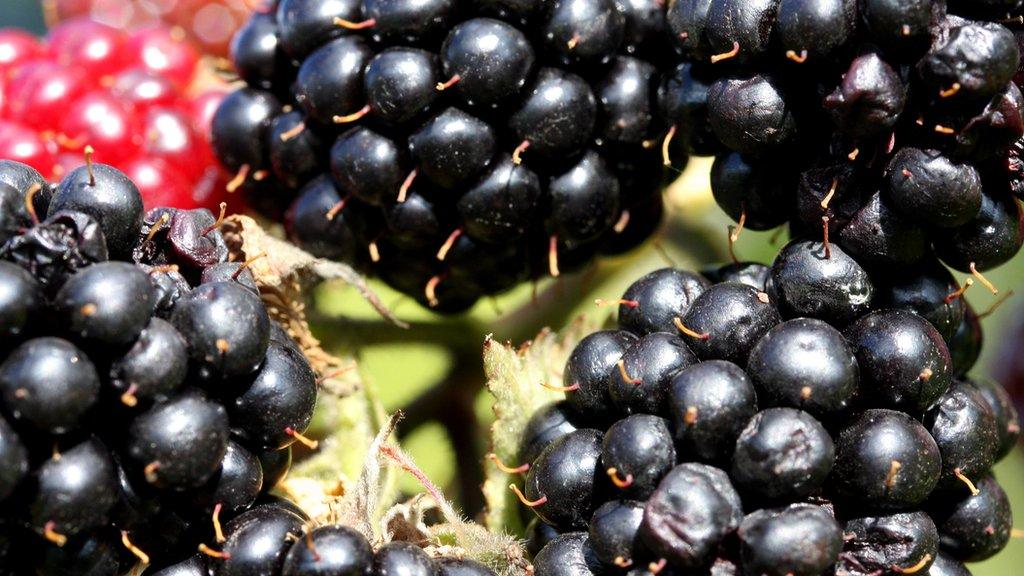Foragers say wet summer has helped blackberry crops
- Published
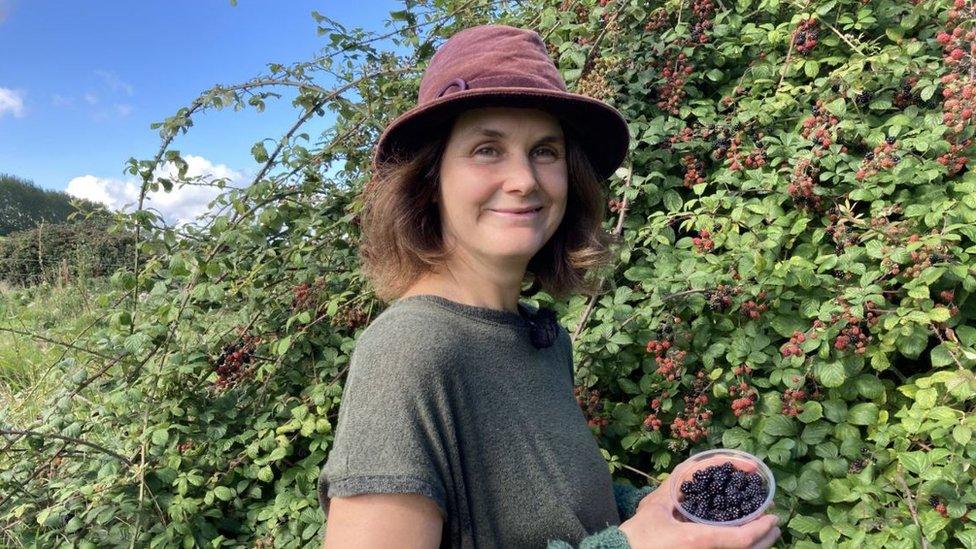
Sarah-Jane Cobley is a herbalist and health coach
Foragers say this summer's heavy rain has led to an abundance of blackberries.
Herbalist Sarah-Jane Cobley forages for blackberries along Festival Way in Long Ashton, near Bristol.
She said the combination of rain and sun has resulted in "bumper crops" this year.
The owner of a pick-your-own site near Swindon also said it was "a great year for fat and tasty berries" because of recent weather.
Norman Parry said his Lotmead site was "bustling with the best type of berries".
Ms Cobley added she believes the crops are likely to last until the end of September, saying "the more water they get, the juicier and plumper they get."
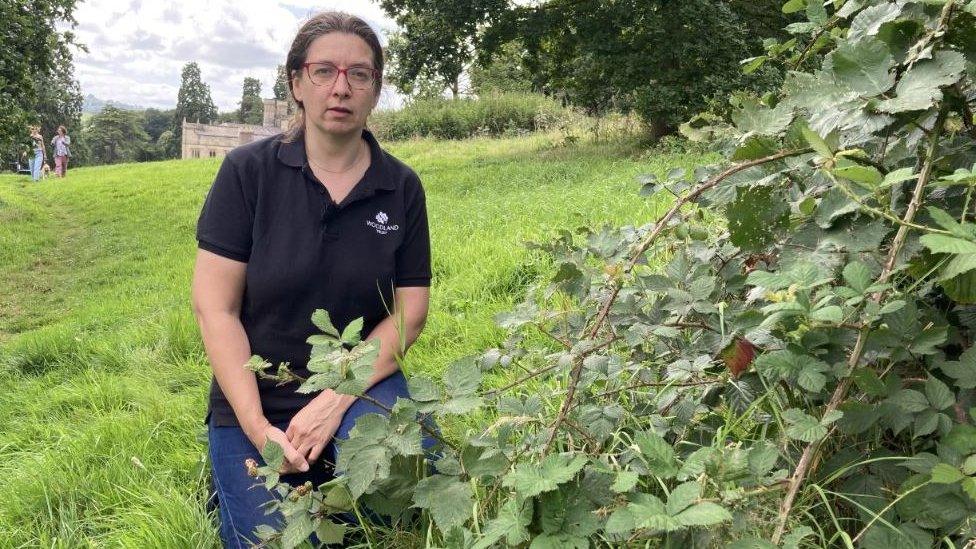
Rosie Walker from the Woodland Trust says the first ripe blackberries were seen earlier than usual this year
This year's first record of ripe blackberries was sighted on 2 July, said Rosie Walker, the Woodland Trust's external affairs officer for the South West.
"We'd normally expect to see those much later in July and early August."
The data comes from the trust's citizen science database, Nature's calendar, external, where people record their own observations from nature.
Ms Cobley, from North Somerset, said picking blackberries is good for encouraging larger harvests, as it allows for the plant to focus its energy on producing new fruit.
Blackberries can be found in bramble, which grows almost anywhere in the UK and thrives in acidic soils.
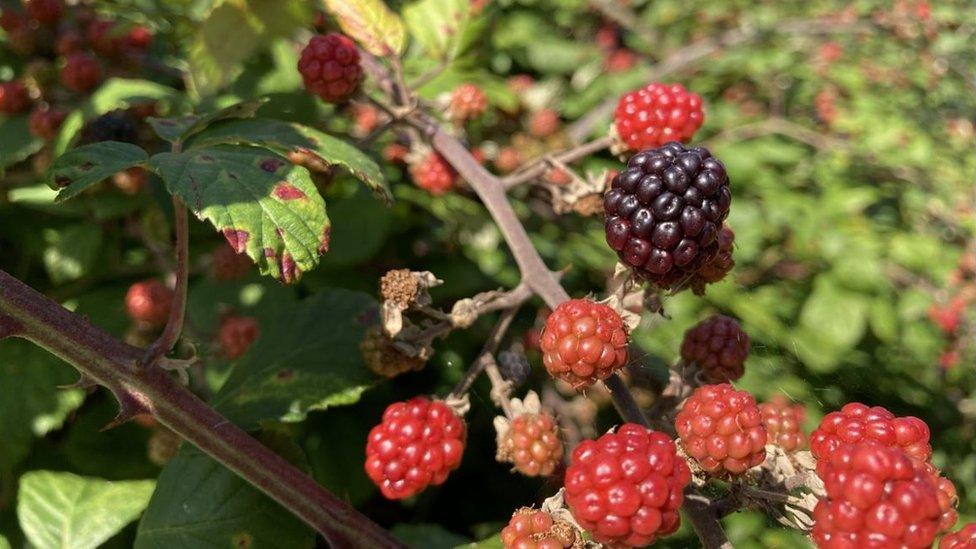
Foragers say there is a "double bumper crop" of blackberries
Flowers bloom in June to July and the fruit is ripe later in the summer.
"There's also lots of different species. It all depends on the weather and I think that's part of the fun, just getting out and exploring," said Ms Cobley.
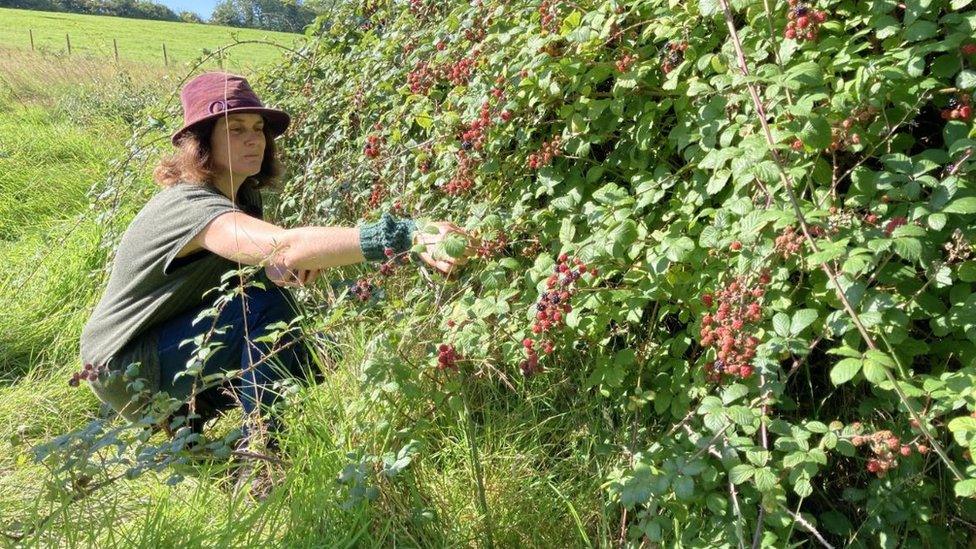
Ms Cobley says foraging is a good way of connecting with food and nature

Sustainable foraging
Take no more than you plan to consume
Ensure you have permission wherever you are picking your crop
Make sure you are confident in what you are picking. Never pick or eat something if you are not 100% sure what it is
Ensure you leave enough for wildlife

MasterChef 2009 winner Mat Follas runs a restaurant called Bramble in Sherborne, Dorset, as well as foraging courses.
"There's a period in June where if we have a good patch of weather, all those wonderful blackberry flowers and bramble flowers get pollinated.
"And then if we get some sunlight after that, we get good blackberries."
Ms Cobley added blackberry foraging can be quite meditative and encourages more people to explore nature through foraging.
"It feels quite adventurous - I get to go out and explore and find the best spots. Anything that gets me outdoors enhances my wellbeing," she said.

Follow BBC West on Facebook, external, Twitter, external and Instagram, external. Send your story ideas to: bristol@bbc.co.uk, external
- Published28 July 2020
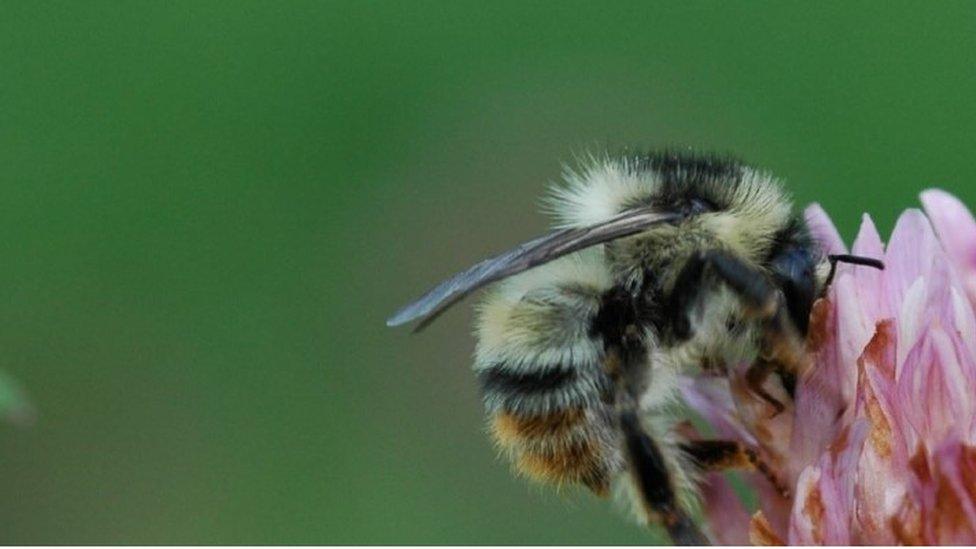
- Published28 July 2020
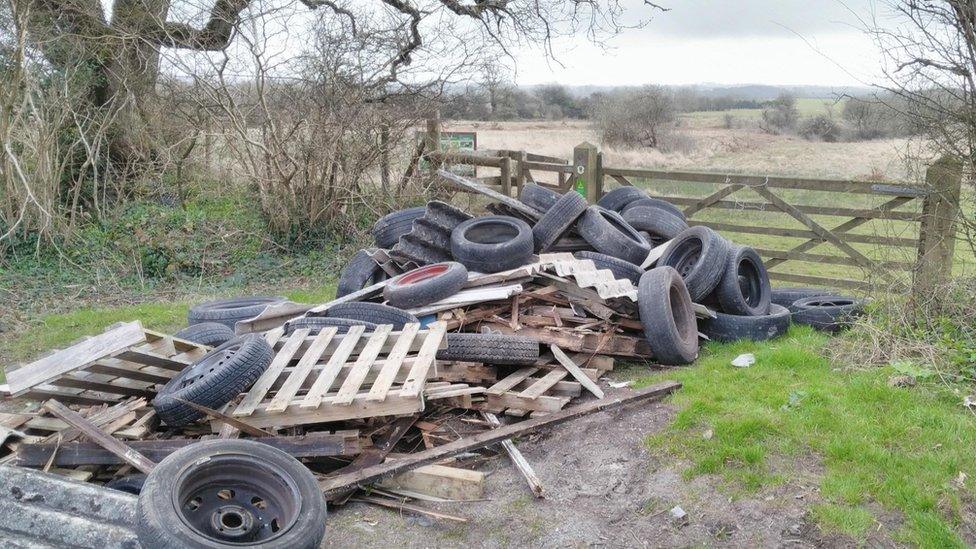
- Published3 February 2016
